It’s never a bad time for adventure fantasy, but I would posit that now is the best time for adventure fantasy.
Here are some of my favourites, hand-selected for escapism, intrigue, high density of swordfights, and sheer enjoyment. Ideal if you have a fire handy to curl up beside. (Surely I am not the only one with a persistent daydream of sitting in a huge wingback armchair before a crackling hearth?)
The Winnowing Flame Trilogy by Jen Williams
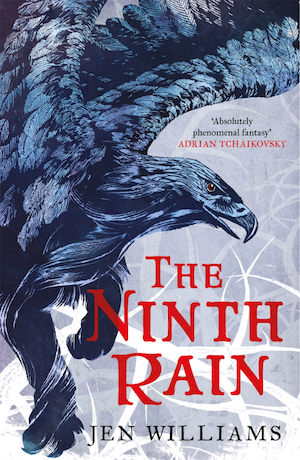
I read this trilogy—beginning with The Ninth Rain—back to back, start to finish, something I don’t think I’ve done with a series for years. These books are just terrifically good fun. They reminded me, in the best way, of curling up in the school library and discovering the great fantasy standards for the first time. They have everything I loved as a teenager—mythical beasts, heroic last stands, unfathomable foes—with a fresh modern twist and a pervading sense of humour. But, most importantly, they have sad vampire elves. “Get this—they were immortal—but then their tree-god was killed—so they had to drink human blood to survive!!!”—me, to all my friends, for the past two months. If that doesn’t convince you I don’t know what to tell you. [Editor’s Note: these books are currently only available in the UK from Headline Books.]
The Green Bone Saga by Fonda Lee
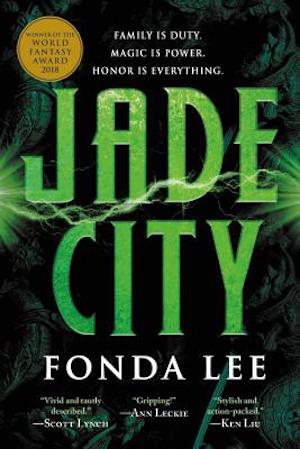
Part family saga, part crime drama, part martial arts epic, Fonda Lee’s Green Bone Saga is one of my absolute favourite fantasy series of the past few years. The worldbuilding is intricate but never overwhelming, and Lee deals subtly with themes you rarely see in fantasy: globalisation, diaspora cultures, the transformation of a traditional way of life. If that sounds kind of heavy, do not be deceived: the primary joy in this series is (1) nail-biting duels, (2) the sheer range of awful things that can happen to the Kaul siblings, (3) the fantasy of driving around the city, surveying your territory through the smoked-glass windows of a gorgeous automobile. Jade Legacy, the final book in the trilogy, is out next year and I cannot wait.
Kalpa Imperial by Angelica Gorodischer
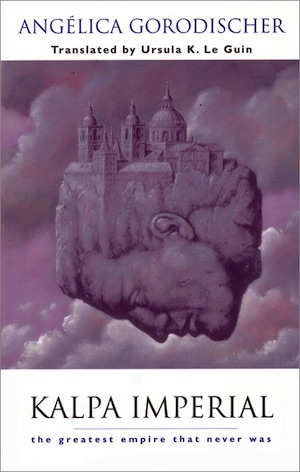
Something between a novel and a short story collection, Kalpa Imperial explores the history of a vast imagined empire through a series of loosely connected vignettes. The stories are—by turns, and sometimes all at once—funny, brutal, cynical, optimistic, bizarre and delightful. You get the sense of exploring an immense half-forgotten ruin. One to read and re-read.
The Name of the Rose by Umberto Eco
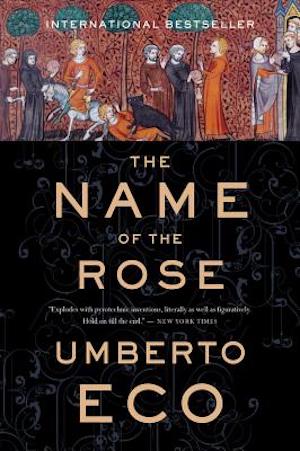
“But this is a work of literary historical fiction,” I hear you cry. I mean, yes, but it also has murders at a remote abbey in the snow, a haunted non-Euclidean library, and one bit where the adorably hapless narrator describes a lavish altarpiece for three or four pages. Speaking of the narrator, Adso of Melk is the sweetest and most useless monk of all time, although I suppose it’s not his fault that he spends all his time with Monk Sherlock Holmes. Great stuff. If you want to learn a great deal about fourteenth-century heresies, you can keep Wikipedia open in a tab, but it’s definitely not mandatory.
The Henchmen of Zenda by KJ Charles
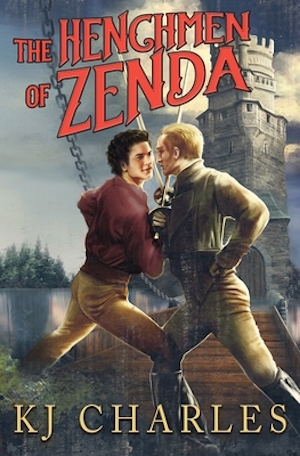
The legendary Victorian pulp The Prisoner of Zenda is an account of a British traveller who must pose as the King of Ruritania in order to foil a dastardly plot. The Henchmen of Zenda reimagines the story from the villains’ perspective—always one of my favourite conceits. The winningly salty Jasper Detchard’s take on the evil scheme includes intrigues within intrigues, kidnap, blackmail, murder, and his offbeat romance with the dashing Rupert von Hentzau. Pure delight.
Dungeon Meshi by Ryoko Kui (aka “Delicious in Dungeon”)
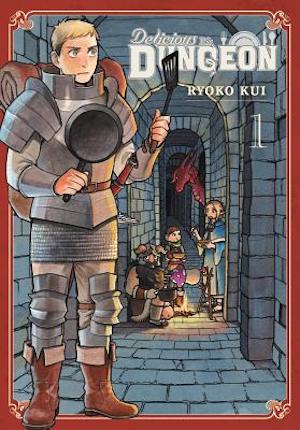
This manga starts with a great premise for jokes. What if an adventuring party had to resort to cooking and eating the monsters in the dungeon they’re exploring? Cue lots of scenes where they have to figure out how to cook mandrake, kraken, etc. It very soon becomes a lovely exploration of fantastic biology (did you know living armour is a mollusc?) which doesn’t shy away from the creeping horror implications of the scenario. The art is absolutely gorgeous, the characters are perfectly endearing, and the worldbuilding is complex, quirky and surprising. Health warning: you may end up hungry for things which do not exist in nature.
The Three Musketeers by Alexandre Dumas
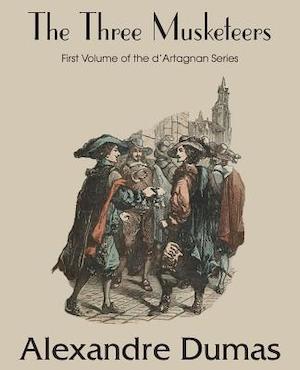
There is a possibly apocryphal story that, on his deathbed, Dumas reread The Three Musketeers to see whether it was still good. It was, and still is. While not technically a work of fantasy, I’ve included it here because it’s one of the finest adventure novels of all time. It has swordfights, espionage, significant jewellery, wonderfully devious villains, and all manner of hijinks. If you’ve been put off by one of the (many) lacklustre film adaptations, do give the book a try—it’s wittier, livelier, cleverer and more charming than any of its imitators.
Originally published in May 2020
A.K. LARKWOOD studied English at St John’s College, Cambridge, and now lives in Oxford with her wife and a cat. The Unspoken Name is her debut novel.










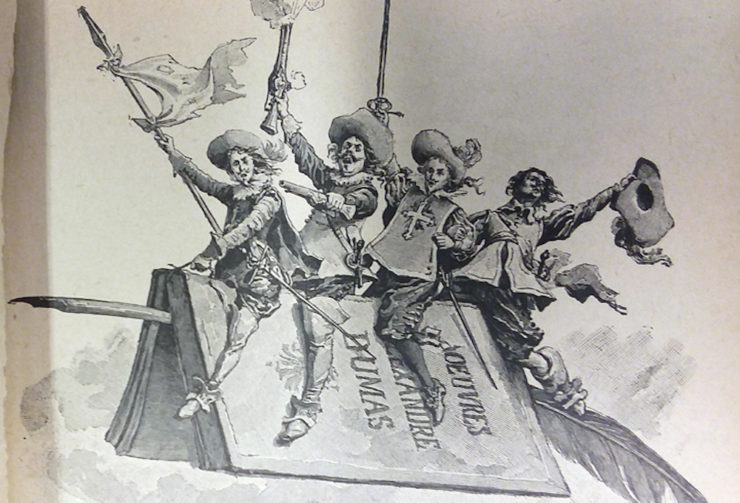
I’m still waiting for the Three Musketeers adaptation that is made with the same combination of miles and miles and miles o’heart and sheer goofy delight as The Princess Bride.
I’ve read two of these books — The Name of the Rose and The Three Musketeers — and enjoyed them both. I’d never thought of them as similar, but who knows.
I guess I’ll have to read the others now.
Since you opened the door to non-fantasy derring do, I would submit three books from Raphael Sabatini; The Sea Hawk, Captain Blood, and Scaramouche. He was a master of adventure.
I’d like to put a good word in for “The Pyrates” by George Macdonald Fraser. It was published in the early 1980s (well before Pirates of the Caribbean, in other words) and while there is no magic, the characters are very well aware of all the great swashbuckling movies of the mid-20th Century.
The Gorodischer, the Eco & the Dumas are all excellent choices, but for Eco I might have gone with Foucault’s Pendulum. It’s an even better book (imo), and it has more explicit SFnal content, so listing it at Tor is less of a stretch.
Okay, so it’s not just me and that Zenda cover is extremely homo-erotic, right?
Definitely not just you, Lady Belaine!
So, if you like the Three Musketeers and yearn for a little more fantasy, read Martha Wells The Element of Fire. I can’t swear it’s still in print, but it’s worth hunting down.
So, anyone who thought the Zenda books sounds interesting, but would like some robots as well, should take a look at the classic Doctor Who serial The Androids of Tara, which basically wears its influence emblazoned in huge neon letters on both sleeves (and ends with one of the most hilariously ludicrous sword fights in TV history).
@MikeBSG:
I tried a re-read of Pyrates last year. Some bits were still funny, but man, the Racism Fairy worked their magic with great force since I last read it 30 or so years ago. So you have been warned.
@Keiteagm:
The Element of Fire is for sale on Big River – quite inexpensive if you buy the e-book version. I too recommend it highly. Lots of fun, and a good gateway into Wells’s other Ile-Rien books.
@3, that would be Richard Lester’s version from 1973-4. It is the funniest and truest to heart of the versions, despite its changes.
From the forward of Lawrence Ellsworth NEW translation of 3 musketeers:
Why do another English translation of <i>The Three Musketeers,</i> especially when there are fine recent renditions by Richard Pevear and Will Hobson? Because it deserves it, and because most published editions of the novel that you’ll find in bookstores and libraries still use translations that were prepared in the 1840s or 1850s, respectable but creaky adaptations endlessly recycled and reprinted, versions that simply don’t properly convey the energy and tone of Dumas’s original work. Though to be fair, those Victorian-era translators knew their business, and delivered exactly what their readers were looking for: historical dramas at the time were expected to be told in the stiff, elevated diction of writers like Sir Walter Scott and James Fenimore Cooper, and the translators saw it as their job to render Dumas’s unconventionally active prose into the more passive style then prevailing. But in doing so these early translations lost much of Dumas’s distinctive voice and tone, that warmth and vibrancy that leaps off the page in the original French.
And that’s a real disservice to today’s readers, denying them some of the key virtues of this really quite modern writer. In translating this, one of my favorite works of fiction, I felt my most important task was to identify Dumas’s genuine voice and bring it to current-day readers of English, so they can meet the man on his own terms and really appreciate what he has to offer.
By the standards of the mid-nineteenth century the novel took a rather frank approach to sexuality; those scenes, which were mostly or wholly elided from the Victorian translations, have been restored in this version. Not least important, I’ve also kept in all the jokes. Dumas was a very funny man, and I have no patience with translators who note that a gag “is a Gallicism that cannot be properly rendered into English.” Weak! Dumas wasn’t above stooping to make a terrible French pun, in which case I considered it my solemn obligation to provide some matching wordplay in English. Because literary translation is a noble calling, and sometimes your sacred duty to the reader requires you to make a terrible, terrible pun.
LAWRENCE ELLSWORTH
Sherwood Smith’s Dobrencia series in a modernized Ruritania. Dobrencia is a mountainous province in Eastern Europe, recently released from Soviet occupation. Coronets and Steel combines with Blood Spirits to reinvent the Zenda trope. With vampires.
Revenant Eve is a Napoleonic era prequel.
Jen Williams’ Ninth Rain series is available in the US through the Book Depository (where I purchased the set for my library; we also make them available for Interlibrary Loan, fyi.)